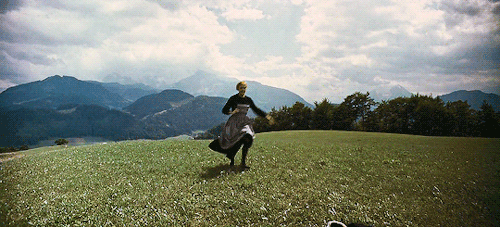

Historically, gunshots either came from lawful persons as a salute, or from gangsters seeking to disrupt the dance (referred to as licking a shot in Jamaican slang). They can also serve as a communication tool for the audience in reaction to the performance. These are essentially used to heighten the energy of the dance and reflect the celebratory nature of these events. Sound effects which can be commonly heard at dances and on recordings include firecrackers, air horns and gunshots (real or imitated). The call was later used as a metaphor to suggest that something reflects the power of a police or militia officer. Ethnomusicologist John Constantinides explained the cultural origin of the sound in his University of Montreal thesis, The Sound System: Contributions to Jamaican Music and The Montreal Dancehall Scene: "Originally, the deejay would call out a respectful legal! (as in members of the law) to the militiamen around the dancehall, inviting a gunshot salute in return (or vice-versa). Dancehall DJs' samplers are usually equipped with an arsenal of gun samples. One of its earliest entries in the genre came in 1982, on Michael Palmer's " Gunshot A Bust," continuing through to Eek A Mouse's 2004 track " Lick Shot" before Vybz Kartel's " Mi Talk With Gunshot" in 2008, and so on (Minaj's "Gun Shot" features reggae star Beenie Man). The gunshot sound in music is likely an import from a time and place that never had to take broadcast censors into account: Jamaican dancehall reggae culture in the late '70s and early '80s.

At the same time, they did air a cleaned-up version of Rihanna's "Russian Roulette" and left Green Day's " 21 Guns" untouched in 2009. The network also silenced Lady Gaga saying the words "gun" and "Russian roulette" on her 2008 hit " Poker Face," as well as "gun" and "bullet" from Foster The People's " Pumped Up Kicks" in 2010. The video's director, Anthony Mandler, complained that the network's censorship had somewhat diminished the clip's narrative power: "whether it's guns or bullets, or sound effects or things that create the whole story," he told MTV UK. At the end of its uncensored version, the rapper is murdered by his love interest, with three shots heard as title cards appear onscreen. So why bother removing gunshot noises from a song? Would the uncensored version of 'Paper Planes' really offend anyone?"ĭrake's 2010 music video for " Find Your Love" was also scrubbed of its gunfire by MTV. "Any impressionable little kids watching MTV are learning that violence is cool anyway. "The weird thing about all that is that MTV is totally cool with airing commercials of movies or video games that prominently feature guns," he wrote. on the actual taping my sound was sooo different from what I'd agreed." Writing in the Village Voice, music critic Tom Breihan accused MTV of hypocrisy over the move. As for Letterman: "I felt soooooo bad for what they did to my sound. was not pleased, posting on MySpace that MTV "sabotaged" her video. Ditto for CBS, which put a silencer on her Late Show with David Letterman performance.
#SOUND OF MUSIC GIF MACHINE GUNS TV#
These days, firearm-obsessed rappers like Gunplay and Waka Flocka Flame carry on the tradition-the latter's " Luv Them Gun Sounds" and " Bustin At Em" advance the cliché almost to the point of parody.Īs hip-hop made the sound of firearms mainstream, did the public become desensitized to it? The censors at MTV still found the gunshots on "Paper Planes" too hot for TV in 2007, replacing them with less-recognizable, muffled thumps. Dre's " Bang Bang," Nas's gun-personifying " I Gave You Power," Jay-Z and The Notorious B.I.G.'s " Brooklyn's Finest," and Mobb Deep's " G.O.D. Credit M.I.A., then, for updating a well-worn rap staple that has circulated through the genre for at least 20 years before "Paper Planes." Some of the most renowned gunshots in music belong to the 1980s and '90s eras of Los Angeles gangsta rap and its Scarface/Goodfellas-inspired New York counterpart, through songs like NWA's " Gangsta Gangsta," Eazy-E's " Eazy Duz It," Dr.


 0 kommentar(er)
0 kommentar(er)
